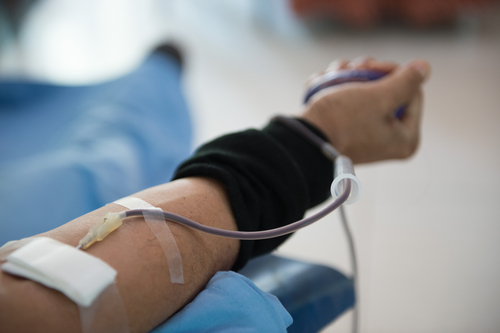FDA Approves Immucor’s PreciseType HEA Test to Screen for Sickle Cell Trait
Written by |

The U.S. Food and Drug Administration (FDA) has approved the use of Immucor’s PreciseType HEA test to screen blood donors for sickle cell trait (SCT), an inherited blood disorder that affects 1 million to 3 million Americans.
SCT is not a disease, but people with the disorder have inherited the sickle cell gene from one of their parents. Most people with SCT do not have any symptoms of sickle cell disease (SCD), although in rare cases, people with SCT might experience complications of SCD, such as pain crises.
SCT is diagnosed with a simple blood test, traditionally performed by solubility testing of sickle hemoglobin (Hbs) in buffer. But this method has limitations, including high rates of false positive results.
The PreciseType HEA (human erythrocyte antigen) test is a molecular assay that rapidly and accurately predicts blood compatibility between donors and patients to help prevent mismatches that can cause alloimmunization in patients.
Alloimmunization is a serious immune response to foreign antigens after exposure to genetically different cells or tissues, and is frequently the undesirable outcome of a blood transfusion.
The test is the first FDA-approved assay that uncovers the specific gene variants associated with red blood-cell antigens to provide the closest match now possible between donor and recipient in a single test. The PreciseType HEA test uses 24 known gene mutations to identify 35 red blood-cell antigens and three phenotypic variants from 11 blood groups simultaneously. Screening donors for sickle cell trait also avoids transfusing red blood cells from SCT donors to patients with SCD or newborns.
“We’ve successfully demonstrated the clinical benefits of our PreciseType HEA test, and this is evident in the FDA broadening its approved use,” Dr. Michael Spigarelli, Immucor’s vice president of medical affairs, said in a press release.
“The use of PreciseType HEA to screen donor units for patients with sickle cell disease, [newborns], or any individual that may require SCT negative blood provides a great improvement over previously used methods, and offers the first FDA approved molecular method specifically for screening units,” he said.
“We had already validated the PreciseType HEA test for this purpose in our lab,” Connie Westhoff, SBB, PhD, the New York Blood Center’s executive scientific director of immunohematology, genomics, and rare blood, said the center had already validated the PreciseType HEA test HCT.
“Our previous screening method required manual testing and interpretation of the results and had high false positive rates,” she said. “About 1 in 12 minority donors possess the sickle trait, so accurate results are important to us to avoid unnecessary notifications to donors and deferred blood units. We are now able to identify SCT in our donors utilizing the same PreciseType HEA test we are already running on many of our donors without running additional tests.”
Spigarelli said sickle cell disease patients may need frequent transfusions, and clinicians want to maximize the effectiveness of these transfusions.
“This molecular method provides a readily accessible way to make this desire a reality,” he said. “Now, when SCT negative units are requested by a physician for a sickle cell patient, laboratory directors have access to an FDA-approved method to rapidly perform this testing to fulfill that request and allow the patient to receive the blood that was ordered.”
The blood from donors with SCT can also present a problem filtering white cells from the blood donation. With the use of a molecular test these units can be detected before the filtration procedure. This allows blood centers to decide how best to use components of a whole blood donation to give patients the finest blood products.





